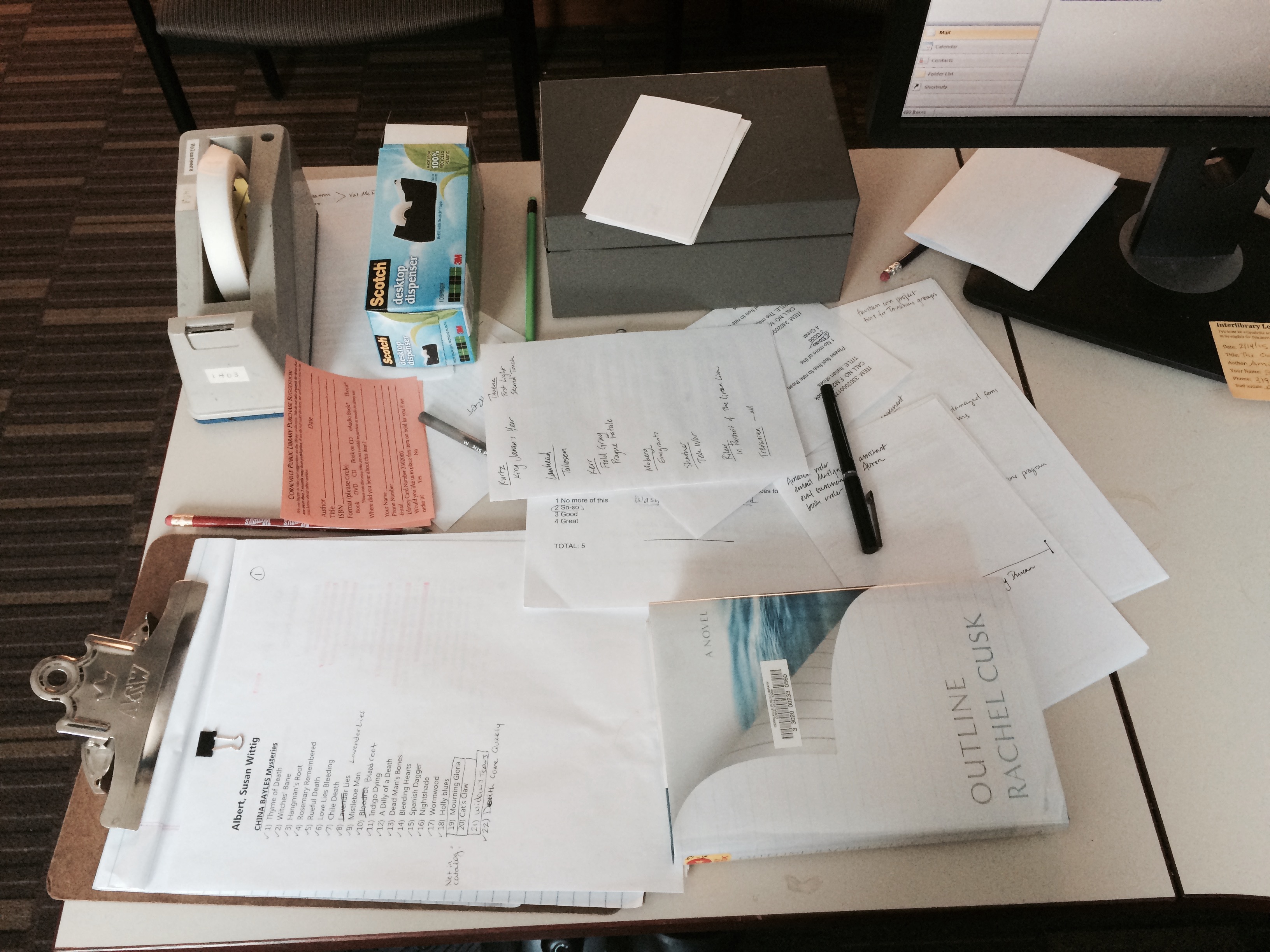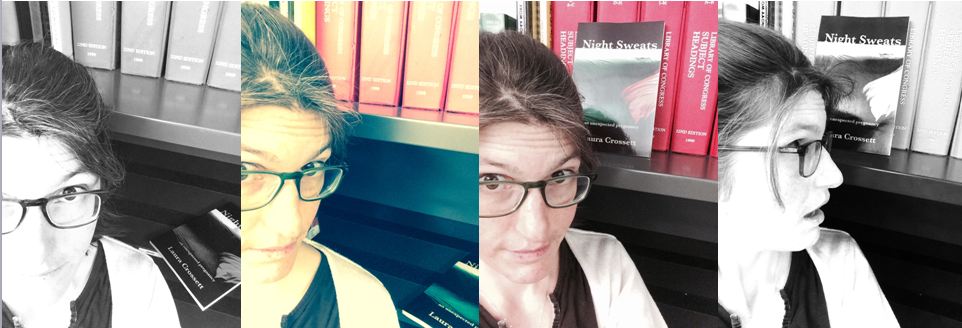
Today marks my ten year anniversary working in libraries, which is not a very long time to have worked in libraries, but it is a very long time for me to have done anything. I’ve never lived in a house or an apartment for more than four years, ever, and I’ve never had a job for more than five years. Some jobs I’ve had for less than five days. So a decade in one profession seems like a very long time.
I walked in to my first day — my first night, really, as I worked exclusively nights and weekends as a part time Youth Services Assistant — at my new library on Ash Wednesday 2005. The town had a large Catholic population, and seemingly every other person I saw that night had a smudgy forehead. I am Christian, of the Episcopalian variety, by both birth and inclination, but I was living with my deeply agnostic grandmother at the time and wasn’t attending church. I wondered about the ashes on the foreheads of many of the staff and how they made patrons feel. I wondered about the lack of ashes on my own forehead, and what that meant. But mostly I was excited. I’d been trying to get a job of any sort in a library for a long time (in my hometown, it’s hard to get even a volunteer position at the library because it’s so popular), and here I finally was, a semester into library school, and I finally had one.
I was very excited when I started working in libraries, and I was also very lucky. The excitement lead me to start a blog just a few months after starting my job, and the luck led me to attend the Radical Reference meetup and the OCLC Blog Salon at ALA where I met all sorts of wonderful and talented people, many of whom I now call friends. Getting into libraries changed my life, and I’m grateful every day to have found a profession where I fit in, where the codes make sense to me, for the most part, and where I get to do at least some things I’m pretty good at.
When I started I spent a lot of time thinking about all the things I was excited about. Alternative literature in libraries! Books I hope people will read! Intellectual freedom! Useable, fun library websites! Blogs! Folksonomies! I was the biblioblogger at the local branch library.
I still think about some of those things, but mostly I think about other things, the kind you see taking up space on my desk. I think a lot about tape. The big tape dispenser, used by volunteers, is missing the thing that the tape rolls around in, which renders it somewhat useless. So I snagged another tape dispenser out of the supply drawer, but it was the last one there, so I put the box and the broken tape dispenser on my desk to remind me to mention all of this to the person who orders supplies when she gets back to work. She’s out with a sick kid today. I’m also supposed to be thinking about receipt paper, and whether I want to get special receipt paper that we could use for holds or if we just want to keep taping the hold slips to the books with removable tape. There’s a list of some books I should go weed because I’ve pulled the rest of the books in the series due to low circulation. There’s a list our praticum student has been working on of mystery series we own, because we make little paper shelf tags for the series, and they need to be updated. (I’ve also taken our practicum student with me to look at all the fire extinguishers in the buidling, because the City wants to know when they were last inspected, and to the bank with the coins we’ve pulled out of our fountain, which are too dirty to run through the change counter and thus must be separated by denomination (thank you, library volunteers!) and then weighed.) There’s a list of some other stuff I should do. There are some paper purchase suggestion forms, because we still use a lot of paper forms here, even though it is 2015, because in many cases, paper is still easier. There’s my email, which always contains a much longer list of to do items, frequently related to gaps in the desk schedule or discrepancies in the cash register or ebook titles that are about to expire because of ridiculous publisher limitations. We recently decided to get MARC records for our ebooks, but that’s creating complications, because the MARC records don’t disappear when the books expire, and some of the books we’ll rebuy and others we won’t, and we share the collection with another library, and some they may rebuy, and I can rant all I want to about how much I hate DRM, the publishing industry, and current ebook licensing models, but none of that will deal with the immediate problem of the records in the catalog and what we want to do about them.
There’s a song by some indie band I can’t recall that I used to listen to in college a lot, and I find it running through my head these days. “I’ve become every thing that I hate / As if tragedy were my trade.” I think a lot now about how much people complained when I started out in libraries that we could never try new things, and I think about how wary I am of new things now, ten years later, when people propose them, and then I think about history repeating itself first as tragedy and then as farce. Then I shake my head and remind myself that I need to answer the emails that have shown up while I was typing this.
You’ll notice that there’s one thing in the picture I haven’t talked about. It’s a book. We still have those at my library. Ten years later, there are some things that haven’t changed. We still have books, and I’m still telling people that libraries are about far more. I expect that will be true in another decade, too.

